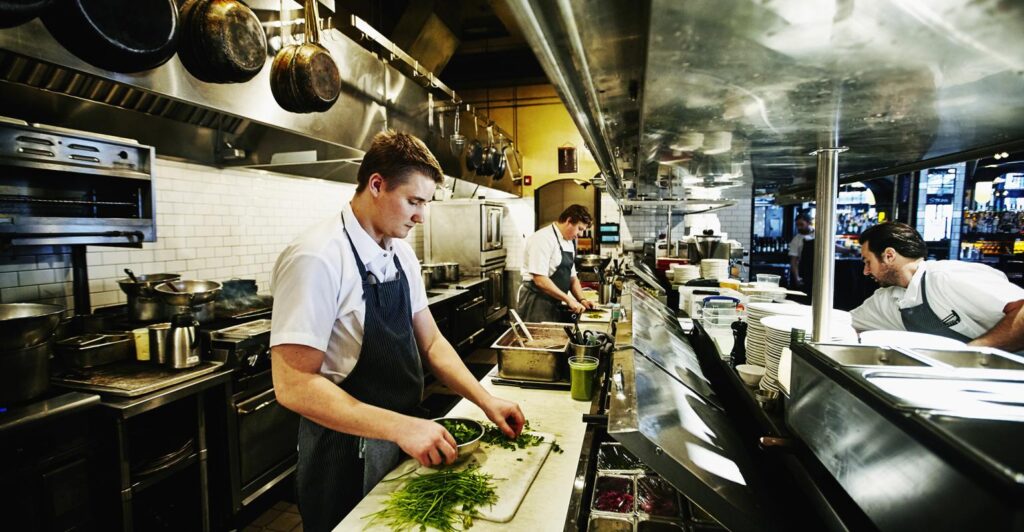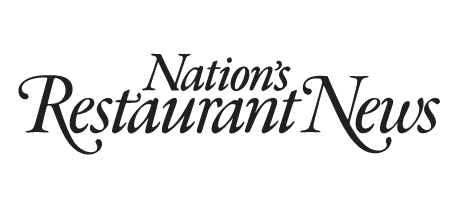Restaurant operators maintain focus on food safety, despite labor challenges
Experts see heightened awareness in the industry in the wake of the pandemic.
07 September 2023
Share this exclusive content from Saladplate

Photo Credit: Getty Images
Foodservice operators have been forced to streamline their operations and menus amid the tight labor market of the last few years, but that doesn’t mean they have taken their eyes off their food safety practices.
Doing more with less has become a mantra for the industry. Although there have been some signs that the industry is returning to pre-pandemic employment levels, there were still nearly 1.1 million job openings in the restaurant and accommodations sector as of the end of July, according to the U.S. Bureau of Labor Statistics.
Dr. Ben Chapman, department head of Agricultural and Human Sciences as well as professor and director of the Safe Plates food safety extension and research program at North Carolina State University, said operators appear to be keeping food safety top of mind even as they find ways to operate more efficiently and with fewer workers.
“Just having fewer staff doesn’t equate to having more food safety issues,” he said. “It all comes down to how an operator manages their staff.”
As restaurants have grappled with labor challenges, many have eliminated some items from their menus, which can reduce some of the burden on staff and ensure they have time to fulfill their responsibilities when it comes to food safety practices, Chapman said.
“If they are too busy, they have more chance of making mistakes,” he said, citing research he has conducted around hand-washing practices in restaurants.
Hourly worker responsibilities
Don FitzGerald of Safe & Sound Food Safety Consultants, which conducts food safety training, pre-health department inspection audits and other services, said operators need to ensure that food safety remains a priority even if managers are busy filling in at other positions or providing support in the kitchen, behind the bar or on the dining room floor.
“They can’t stop doing these things to do something that an hourly employee should be able to do,” he said.
Making sure hourly employees are responsible for fundamental food-safety practices such as monitoring temperatures not only removes this burden from managers, FitzGerald said, but it can also help hourly workers feel more empowered.
“If you give them more responsibility, they take more pride in their jobs,” he said.
Jeff Nelken, a Los Angeles-based food-safety consultant, also stressed the importance of maintaining frequent, back-and-forth communication between management and workers. That way, any issues that arise, including things that could impact food safety, can be addressed before they result in accidents or outbreaks of food-borne illness.
“Just talk about what’s going on, ask people what their challenges are, and about any frustrations they have at work, and also talk about food safety,” he said.
Onboarding inexperienced workers
One of the effects of the tight labor market has been an increase in the hiring of workers from outside the industry.
While this can add to the complexity of ensuring that food-safety practices are followed, it’s not always a detriment to these efforts, especially if experienced workers come from restaurants where food safety was an afterthought.
“I have been in this business for many years, and I have always thought there was an advantage to bringing people in from outside the industry,” said FitzGerald. “You are getting people who have no bad habits.”
For job applicants who have restaurant experience, FitzGerald said he encourages his clients to ask potential new hires about the food safety practices at their previous employer, such as whether or not workers faithfully adhered to safety procedures, or if enforcement was lax.
He also suggests that operators mix in some specific questions about food safety when they screen employees, even if the applicants claim to have completed a food-safety course, as is required in many states.
“Are they actually the ones that took that online course? You never can tell, which is why you should ask them some food safety questions,” FitzGerald said.
Nelken said he reinforces with new hires that the performance expectations around food safety practices in restaurants are every bit as important as the performance expectations workers may have had in their previous jobs outside the industry.
He also said he likes to walk through the restaurant with new employees and show them what health inspectors are looking for, and reinforcing to them that they need to be ready to answer questions from those inspectors.
“They want to make sure that you have been trained, and are prepared to do the job safely,” he said.
FitzGerald agreed that employees need to be conversant in the rules around food safety, including time and temperature requirements for food storage, as well as requirements around sanitation and personal hygiene. Health inspectors can ask questions of workers to test their awareness of food safety requirements and can downgrade a health inspection if a restaurant employee fails at what is called “demonstration of knowledge.”
“They can ask a dishwasher, ‘What’s the temperature supposed to be in the first compartment of a three-compartment sink?’” said Fitzgerald. “And, ‘What’s the minimum temperature for your hand-washing sinks?’ People should know these things.”
In order to help reinforce the importance of food safety, FitzGerald said he often returns to a restaurant a few weeks after giving a food-safety course and observes a lunch shift and a dinner shift. This helps reinforce the lessons of the class and course-correct any improper behaviors that may have re-emerged.
“The restaurant manager often doesn’t have time to do this, because they themselves are doing a job, or maybe they are doing 20 jobs,” he said.
The benefits of automation
Many operators have been exploring opportunities to leverage technology solutions to minimize labor, from self-ordering kiosks to robotic fry cooks and burger flippers. To the extent that such automated solutions free up staff to focus on other critical functions — including food safety — they can be a boon to a restaurant’s efforts to protect the public from food-borne illness, said Chapman.
He noted, however, that introducing new pieces of equipment such as these could also introduce the need for additional cleaning and sanitation measures specifically related to their use.
Automation designed to assist in monitoring restaurant conditions, such as sensors that measure temperatures and automatically send alerts to a mobile phone or computer, can provide benefits to those operators that can afford such solutions, food-safety experts said.
“I think there are a lot of benefits for exploring digital food safety management systems,” Chapman said. “These sensors can be extremely beneficial.”
In addition to the potential labor savings that such devices can provide, they can also conduct additional monitoring that workers might not readily detect, such as a holding well that is losing its ability to maintain its temperature, he said.
Elevated awareness of food safety
Genuine awareness and concern around the importance of food safety has increased in recent years, in part due to the focus on hand-washing and sanitation that emerged during the pandemic, according to food-safety experts.

Genuine awareness and concern around the importance of food safety has increased in recent years, in part due to the focus on hand-washing and sanitation that emerged during the pandemic. Photo Credit: Getty Images
“Our experience with new, entrepreneurial folks in the industry is that they want to do it right, and for the right reasons,” FitzGerald said. “They understand the obligation to protect the public health.”
The pandemic also highlighted the importance of ensuring that employees to stay home if they are ill, he said.
“We remind people that A, Covid really hasn’t gone away, and B, the obligation not to come to work when you are sick has not gone away,” he said.
Chapman also believes many operators have been taking a responsible approach to food safety.
“Fortunately,” he said, “there are some really progressive companies out there that are doing the right things.”

Source: Nation’s Restaurant News



